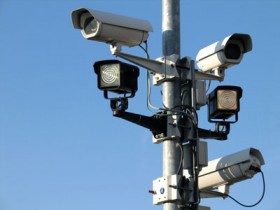
‘Thousands of secret surveillance orders are approved each year ‘ states an American judge. US government use antiquated legislation to leer into the personal communications of Americans and Cyber Intelligence Sharing and Protection Act (CISPA) is only a detail.
Washington / NationalTurk – US federal judges approve over 30,000 secret warrants to spy on people in the USA on a yearly basis, and the innocent probably will never know they were constantly watched, noted a U.S. jurist involved in issuing the surveillance orders.
The US Congress authorized the Electronic Communications Privacy Act (ECPA) in 1986, more than a quarter of a century has passed however the incredibly outdated legislation is still used each and every day to let federal agents find out personal and private information by combing through emails, texts and any other form of online correspondence.
USA Spying on citizens : ECPA must laid to rest
Kade Crockford, a privacy rights coordinator with the American Civil Liberties Union, fights to make sure that ECPA is laid to rest.
Crockford says she was only three years old in 1986 and tells , ‘ If you were my age at the time, cell phones didn’t really exist.’ What was a reality, however, was ECPA. Unlike cell phones and the troves of technological updates that mobile devices have seen over the last few decades, though, ECPA remains more or less identical to its original incarnation.
When ECPA was first approved by Congress, critics couldn’t find all that much to worry about as ’email’ was still a subject impossible for most Americans to grasp. Down the road, however, Crockford says that advances with the Internet are creating all news reasons for computer users to be concerned.
Perfect conditions in modern day life for spying on citizens
‘ People didn’t use email in the way that we do now. Web chat didn’t exist. Storing our information in the digital cloud was completely unheard of. These are things that we all do now every day. We live most of our lives in the digital realm. Our banking information is all online. Increasingly our health records out online. We communicate very, very important information via email, via direct message on services like twitter, via web chat, via Skype,’ informs Crockford. ‘ US Congress needs to update ECPA.’
Meanwhile Magistrate Judge Stephen Smith writes in a new paper, highlighted by Ars Technica, that the 2006 total outstripped the entire output of the Foreign Intelligence Surveillance Court since it was created in 1979, and the number is probably growing.
Privacy rights coordinator Crockford’s calls to finish ECPA comes after US Magistrate Judge Stephen Smith examined the surveillance warrants that have been authorized since the birth of the legislation and learned that unassuming eyes are allowed to access private information tens of thousands of times a year.
US Citizens Privacy Rights breached and usurped
In his report, ‘ Gagged, Sealed and Delivered,’ Judge Smith adds that it’s ‘ reasonable to infer that far more law-abiding citizens than criminals have been tracked’ under a certain subsection of ECPA.The secret orders are authorized by the Electronic Communications Privacy Act of 1986, known as ECPA.
US Judge Smith writes that the volume of such cases ‘ is greater than the combined yearly total of all antitrust, employment discrimination, environmental, copyright, patent, trademark and securities cases filed in federal court.’
‘ What the judge magistrate’s report shows is that the rules that ECPA put in place over 25 years ago are willfully inadequate, primarily because they don’t allow even Congress, let alone the general public, to know how many of these orders are being issued,’ claims Crockford, “because there are gag, sealed and blindfold provisions which prevent people from even knowing how many of these orders are out there.”
Essentially, says Crockford, the US government can already be spying on Americans without unsuspecting citizens completely in the dark.
US Surveillance : secretly watching observing and enlisting you !
‘ A key piece that we have to realize here is that, my emails, the emails that I send to my friends…I don’t actually possess them, ‘ Cockford claims , “If I use Google or Gmail to send emails, its Google or Gmail that possess my emails, so the government doesn’t even have to go to me. It can completely ignore me if it wants information about what I’m talking about or who I’m talking to and go to Google instead.”
The secretly issued warrants and the court’s proceedings are not open to public scrutiny. A three-judge panel reviews denials of applications for the surveillance orders, but the court is not adversarial or open, and many orders are never unsealed.
Currently the US Congress is considered the Cyber Intelligence Sharing and Protection Act CISPA, which would allow the US government to go into information collected by third-party companies without any repercussions. Under EPCA, however, federal agencies are often already allowed that. Under ECPA, all investigators need is an official request that human rights advisor Crockford calls the order somewhere between a subpoena and a warrant.
‘ A subpoena is simply a form that a prosecutor fills out and submits to a holder,’ explains Crockford, while, ‘…a warrant is a much stricter standard. There is probable clause.’ The orders filed under ECPA, she notes carefully, ‘sits somewhere in the middle.’
ECPA or CISPA : Which is worse for US Citizens
According to Crockford, Silicon Valley’s biggest companies are supporting a chance to ECPA while CISPA is shunned by many of them.
Although her work with the ACLU situated her alongside other civil liberties organization in the Digital Due Process Coalition — a group that is fighting for ECPA reform — she says she isn’t alone.’ It’s also companies like Microsoft and AOL and Apple, because these companies want people to trust the digital cloud,’ she says. ‘ They want people to trust that when they put information online, that when they store it with third part content holders like them, that it’s going to be safe from US government interference.’
[adrotate banner=”50″]
